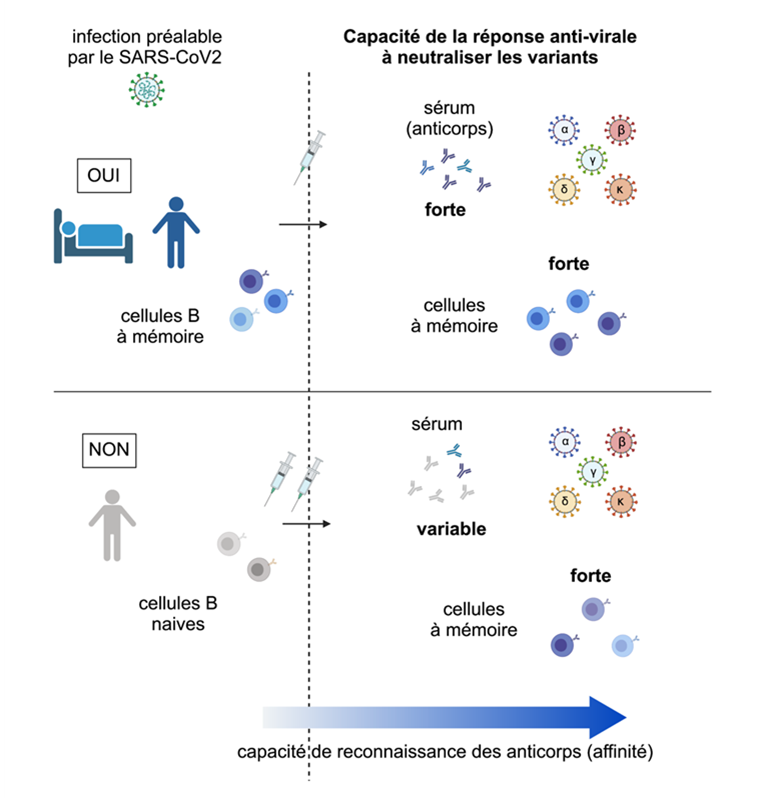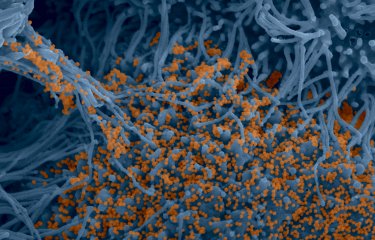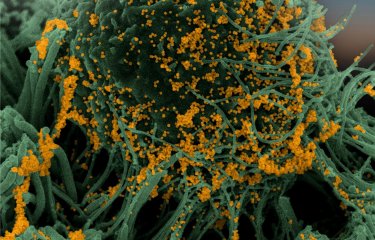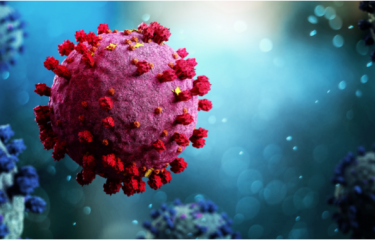The teams from Henri-Mondor AP-HP hospital and Paris-Est Créteil University, Inserm, CNRS, University of Paris, within the Necker-Enfants Malades Institute, and the Institut Pasteur analyzed the capacity of the immune memory generated after mRNA vaccination to recognize and neutralize SARS-CoV-2 variants.
This work, coordinated by Prof. Matthieu Mahévas, Dr Claude-Agnès Reynaud, Prof. Jean-Claude Weill, Dr Pascal Chappert, Dr Félix Rey and Dr Pierre Bruhns, shows that people vaccinated with a messenger RNA vaccine against SARS-CoV-2 develop defenses against the Beta and Delta variants. Their immune system indeed produces memory cells capable of recognizing and neutralizing these worrisome variants. The results of this study were published on September 20, 2021 in Immunity.
Immune memory is a mechanism that protects individuals against reinfection. This strategy of defense of the organism, which is the basis of the success of vaccines, includes the production of protective antibodies in the blood (detected by serology) as well as the generation of memory cells, able to reactivate quickly into cells secreting antibodies during a new infection.
The teams from Henri-Mondor AP-HP hospital and Paris-Est Créteil University, Inserm, CNRS, University of Paris, within the Necker-Enfants Malades Institute, and the Institut Pasteur, studied the fate of memory B cells* in patients vaccinated with a messenger RNA vaccine and their capacity to recognize and neutralize SARS-CoV-2 variants.
This study demonstrates that patients infected during the first wave maintain a stable memory response for up to 12 months, and after one dose of vaccine develop excellent serological and cellular memory capable of recognizing and neutralizing the Beta and Delta variants of SARS-CoV-2.
In patients "naive" from a former SARS-CoV-2 infection, that is to say who have never been infected with the virus, the quality of the serological response is initially less efficient with respect to the Beta and Delta variants. Nevertheless, the pool of memory cells generated after vaccination improves over time and contains cells capable of recognizing and neutralizing the current variants of SARS-CoV-2.
These results were obtained by studying the maturation of memory B cells in 47 patients who contracted Covid-19 during the first wave and 25 “naive” caregivers who were not infected with the virus.

This study strongly suggests that the memory cells of people vaccinated with two doses of the vaccine (or just one for those who had previously contracted COVID-19) protect from severe forms of Covid-19 due to SARS-CoV-2 variants, in support of the protective antibodies present in the blood. This very encouraging result also suggests that in the event of strong viral circulation due to the SARS-CoV-2 variants, a third dose of vaccine, using currently available vaccines containing the original Wuhan Spike, should make it possible to rapidly generate antibodies neutralizing the Beta and Delta variants currently present and reducing viral circulation.
* The encounter with a new pathogenic microorganism activates naive B lymphocytes and induces their transformation into plasma cells, cells specialized in the production of antibodies. The body then retains a population of memory B lymphocytes and plasma cells that can be mobilized very quickly in the event of reinfection by the same pathogen or pathogens exhibiting strong similarities.
This work received funding from the Foundation for Medical Research as part of the ANR-Flash Covid call (Memo-Cov-2 Project), ERC funding (European Research Council Advanced Grant B-response) and from the Institut Pasteur’s Coronavirus Taskforce.
Source
mRNA vaccination of naive and COVID-19-recovered individuals elicits potent memory B cells that recognize SARS-CoV-2 variants, Immunity, 21 septembre 2021
Aurélien Sokal*, Giovanna Barba-Spaeth*, Ignacio Fernández*, Matteo Broketa*, Imane Azzaoui**, Andrea de La Selle**, Alexis Vandenberghe**, Slim Fourati**, Anais Roeser, Annalisa Meola, Magali Bouvier-Alias, Etienne Crickx, Laetitia Languille, Marc Michel, Bertrand Godeau, Sébastien Gallien, Giovanna Melica, Yann Nguyen, Virginie Zarrouk, Florence Canoui-Poitrine, France Noizat-Pirenne, Jérôme Megret, Jean-Michel Pawlotsky, Simon Fillatreau, Pierre Bruhns†, Felix A. Rey†, Jean-Claude Weill†, Claude-Agnès Reynaud†, Pascal Chappert† & Matthieu Mahévas†.
* these authors contributed equally.
** these authors contributed equally.
†shared senior authorship.





